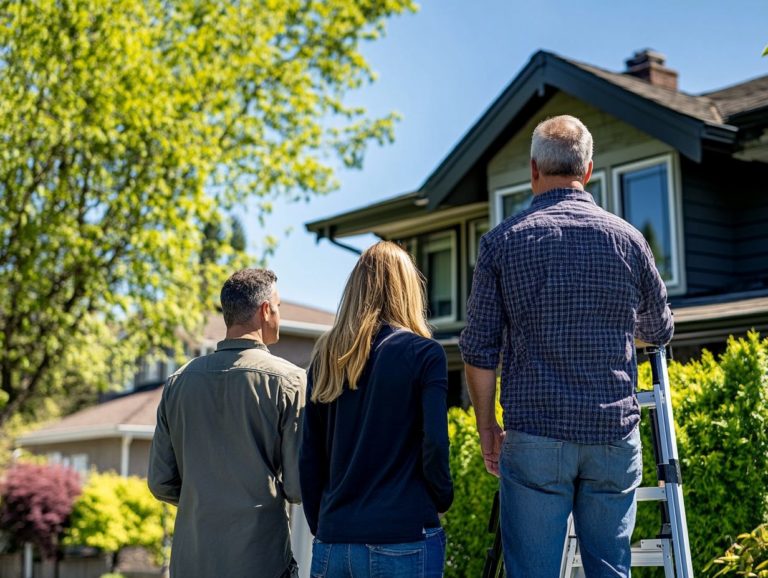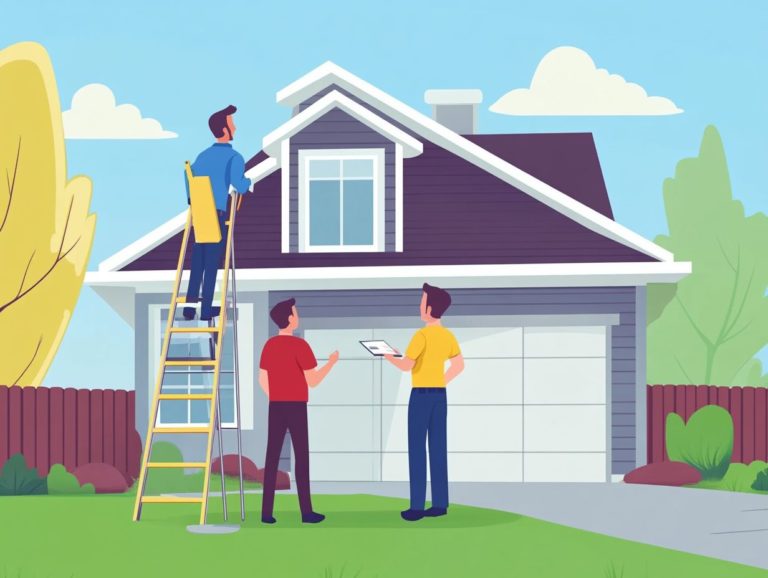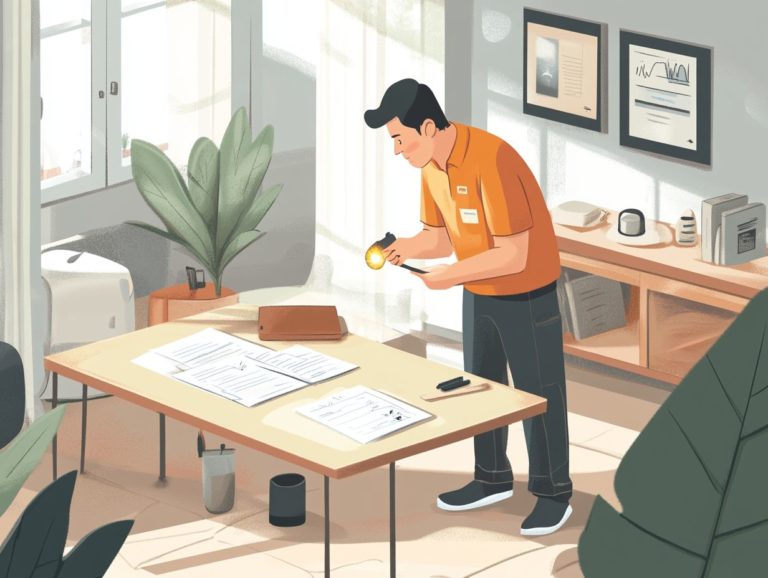How to Prepare for a Home Inspection: Essential Steps
Are you ready to uncover the secrets that could save you time and money when buying or selling a home? A home inspection is an essential step that offers valuable insights into the condition of a property.
This guide clarifies what a home inspection involves and why it is essential. You will find a step-by-step approach to getting your home ready, along with tips for common concerns and strategies to boost your property’s appeal.
We will explore the next steps after the inspection to ensure you are well-prepared for what comes next.
Contents
- Key Takeaways:
- Understanding the Purpose of a Home Inspection
- Preparing for a Home Inspection
- Addressing Common Areas of Concern
- Tips for a Successful Home Inspection
- After the Home Inspection
- Final Thoughts and Recommendations
- Frequently Asked Questions
- What is a home inspection and why is it important?
- How long does a home inspection typically take?
- What should I do to prepare for a home inspection?
- Can I be present during the home inspection?
- What should I do if the home inspection reveals any issues?
- Do I need to do anything after the home inspection?
Key Takeaways:
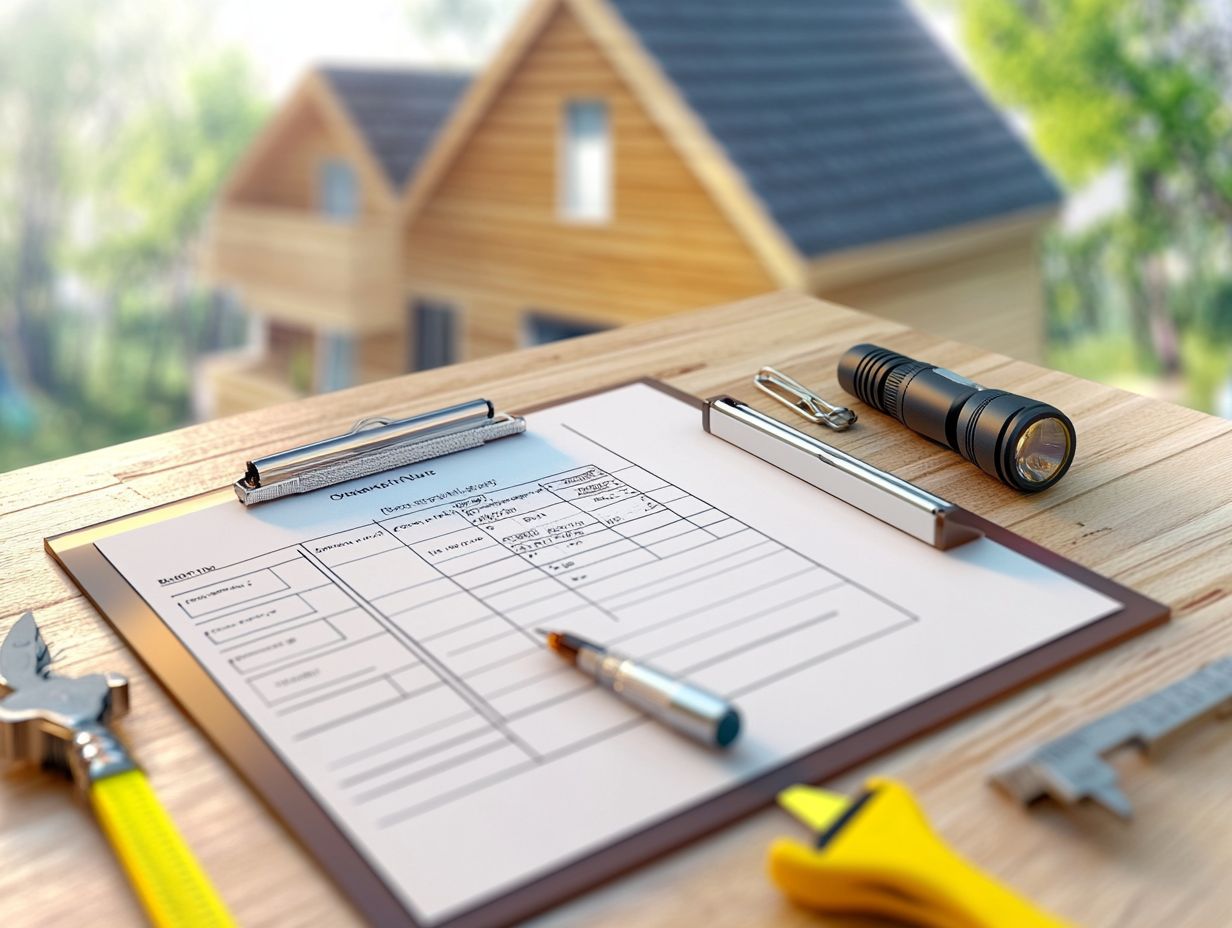
Understand the importance of a home inspection in the buying process. Follow how to prepare for a home inspection with a step-by-step guide, tackling common concerns. Maximize your home’s presentation to increase the chances of a successful inspection. Know the results and take necessary steps for repairs or improvements.
Understanding the Purpose of a Home Inspection
A home inspection provides a detailed assessment of a property’s condition. It involves a careful inspection of the structure, electrical systems, plumbing, and safety features to uncover potential issues.
This thorough process prioritizes safety and is a vital tool for negotiating repairs and increasing your property’s value in a competitive market.
What is a Home Inspection and Why is it Important?
A home inspection is a detailed evaluation conducted by a qualified inspector. It uncovers issues that may affect the safety and value of the home.
Inspectors check various elements, including electrical systems and plumbing, ensuring they meet safety standards. Buyers gain crucial information for negotiating repairs or adjusting the price.
Sellers also benefit by addressing concerns upfront, enhancing the home s appeal. Navigating the inspection process carefully helps both sides have a smoother transaction.
Preparing for a Home Inspection
Preparing your home for inspection requires care. Start with a thorough cleaning to create a welcoming atmosphere, and refer to the essential checklist for home inspections to ensure you cover all important aspects.
Remove clutter to highlight your home’s strengths. Additionally, addressing visible issues can help avoid raising red flags during the home inspection.
Step-by-Step Guide to Preparing Your Home
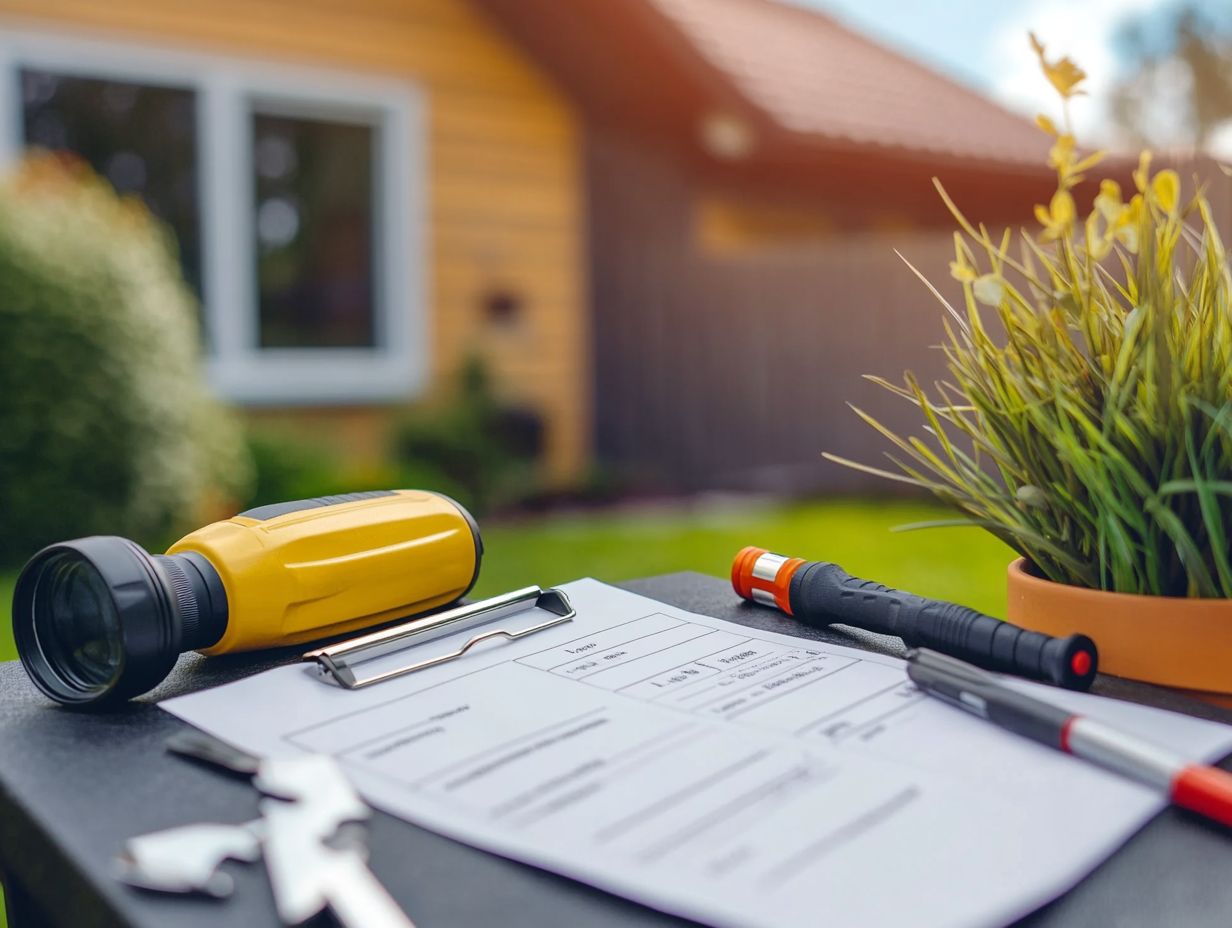
To ensure a successful inspection, follow these guidelines focusing on critical cleaning steps and minor repairs. For more detailed advice, check out how to prepare for a successful home inspection. Start by decluttering every room for easy access to essential areas.
Next, tackle minor repairs fixing leaky faucets and tightening doorknobs can boost your home’s appeal. Check that all appliances are functional, as non-working units may raise concerns.
Deep clean high-traffic areas, kitchens, and bathrooms. Don t forget to check the attic, basement, and roof for hidden problems.
Also, check your heating, ventilation, and air conditioning systems to ensure everything is running smoothly.
Addressing Common Areas of Concern
During a home inspection, focus on key areas like the foundation, electrical systems, plumbing, and safety features. Thoroughly checking these components can reveal potential issues.
Troubleshooting Potential Issues
Troubleshooting potential issues before a home inspection can greatly influence the inspection report. This allows you to uncover problems within electrical systems, plumbing, and essential safety features.
This proactive approach not only helps you tackle existing concerns but also promotes regular upkeep, which can elevate your property value and boost buyer confidence.
One of the first steps in this journey is ensuring all areas are moisture-free. Condensation and leaks can lead to mold growth, a frequent red flag in home assessments.
Implement effective pest control strategies to deter unwanted infestations that can damage your home’s structural integrity.
It is wise to document repairs and improvements in a well-maintained inspection report. This transparency builds trust and can streamline negotiations during the sale.
Tips for a Successful Home Inspection
To achieve a successful home inspection, prioritize maximizing your home’s presentation and functionality by following these tips for a successful home inspection day.
Your attention to detail will enhance the overall impression and significantly impact the outcome of the inspection.
Maximizing Your Home’s Presentation and Functionality
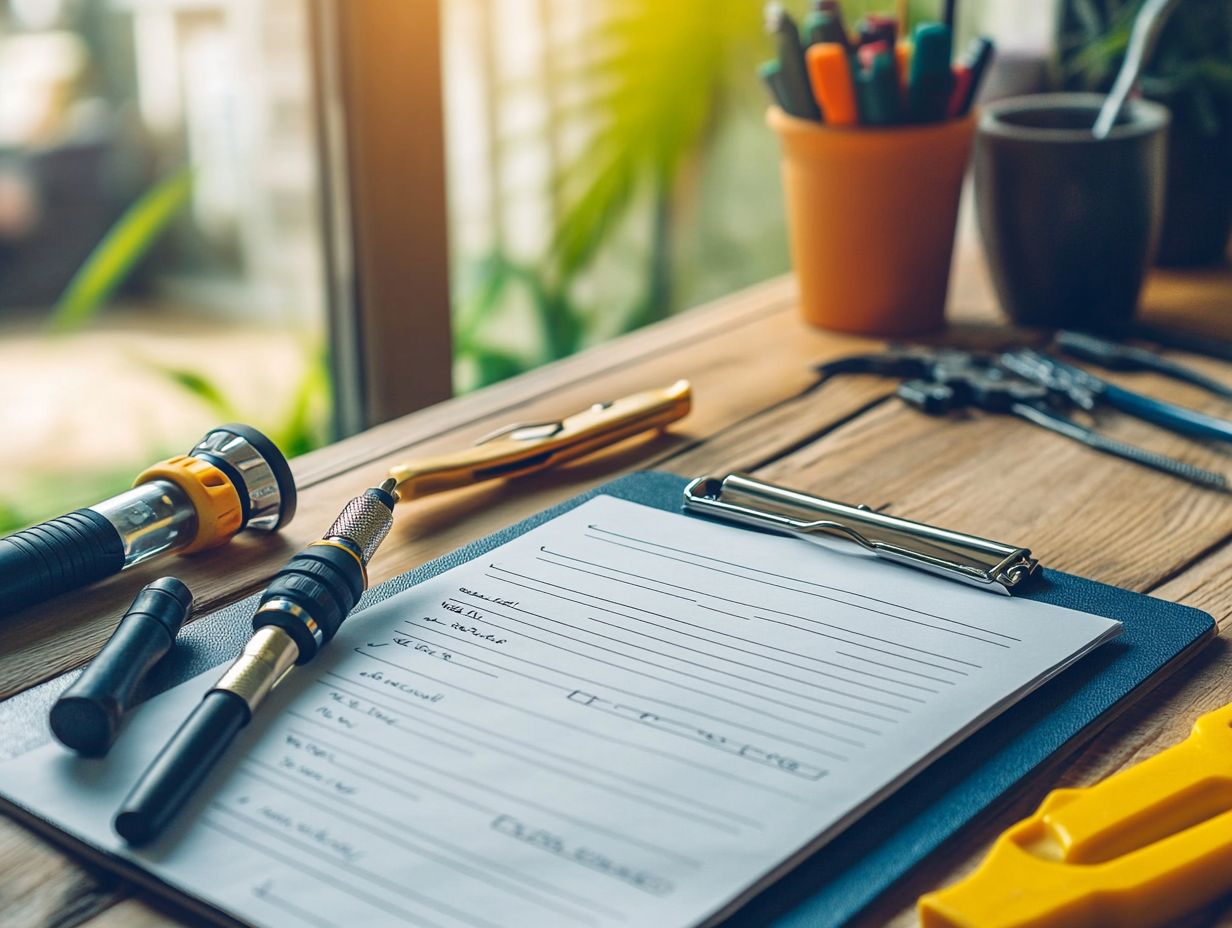
Maximizing your home’s presentation and functionality demands a keen eye for detail. Focus on boosting curb appeal and ensuring every system is in top shape before inspection day. To aid in this process, navigating the home inspection process can provide specific strategies to enhance both the interior and exterior of your property.
Simple landscaping tasks, such as:
- Trimming overgrown bushes,
- Planting seasonal flowers,
- Maintaining a pristine lawn,
can create a welcoming first impression. Additionally, addressing exterior repairs like repainting shutters or fixing siding can significantly elevate your home’s attractiveness.
Inside, upgrade appliances for efficient performance or add safety features like smoke detectors. These improvements not only enhance livability but also leave a lasting impression during the inspection. By taking these proactive steps, you can positively influence the inspection report and set the stage for smoother negotiations and potentially higher offers.
After the Home Inspection
After a home inspection, understanding the results is key to shaping your success. This understanding is vital for both sellers and buyers, especially regarding how the findings can shape your negotiation strategies moving forward.
Understanding the Results and Next Steps
Understanding the inspection findings is crucial for determining your next steps. This may involve negotiating repairs or considering the repair estimates provided by the buyer.
When the inspection reveals various issues, thoughtfully evaluate each concern and weigh the potential impact on the sale. Common problems might include roof damage, plumbing leaks, or electrical issues that demand your attention.
Foster open communication about these findings to benefit both parties. Present reasonable repair estimates or concessions to ease negotiations.
Act quickly to address any findings to streamline negotiations and reduce the potential for disputes. Addressing concerns promptly paves the way for mutually beneficial outcomes, ultimately creating a smoother transaction for everyone involved.
Ready to enhance your home for a successful inspection? Start your preparations today!
Final Thoughts and Recommendations
The home inspection process is a valuable resource for both sellers and buyers. When approached with care and preparation, understanding the home inspection process offers significant advantages.
This process uncovers potential issues and provides a chance to address concerns and negotiate terms before finalizing the sale.
For buyers, reviewing the inspection report is crucial, as it can reveal hidden problems that may affect long-term financial commitments.
Sellers can gain a big advantage by securing a pre-inspection to identify and fix issues before listing the property.
By staying informed and taking a proactive approach, both sellers and buyers can navigate the real estate landscape with confidence, making decisions that align with their goals and leading to smoother transactions.
Frequently Asked Questions
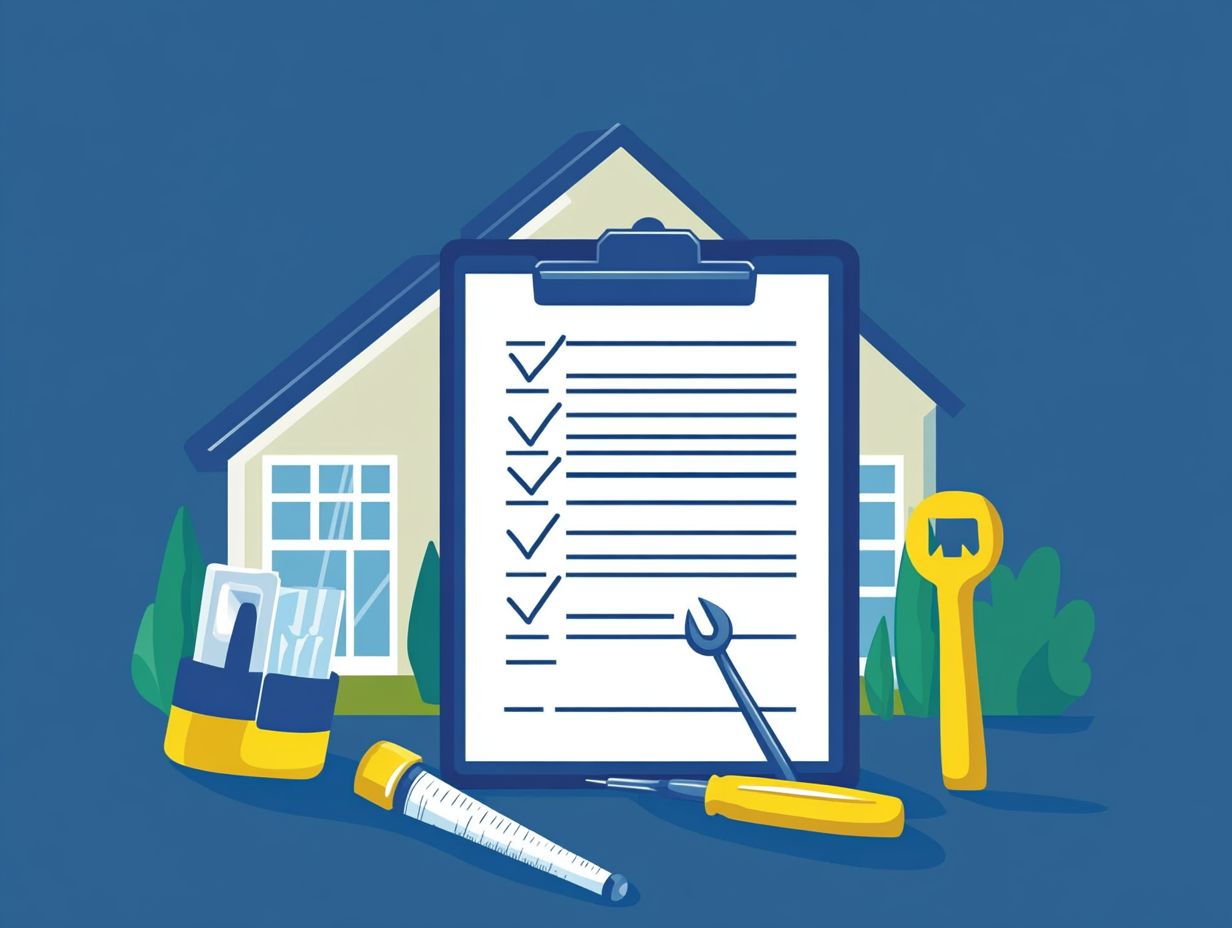
What is a home inspection and why is it important?
A home inspection is a detailed check-up of a property’s condition, usually done before buying or selling a home. It’s important because it can spot any potential problems or safety hazards, helping you make informed decisions about the property.
How long does a home inspection typically take?
The length of a home inspection varies based on the property’s size and condition. On average, it takes about 2 to 4 hours. Be sure to give the inspector enough time to do a thorough job!
What should I do to prepare for a home inspection?
Start by ensuring the house is clean and clutter-free. This allows the inspector to easily access all areas. Make sure all utilities are on, and remove any personal items or valuables from the inspection areas. For a comprehensive overview, consider referring to understanding the home inspection process. Provide any necessary access codes or keys to the inspector.
Can I be present during the home inspection?
Yes, it’s highly recommended to attend the home inspection. This lets you ask questions and understand the property’s condition better. Just be mindful to let the inspector do their job without interruption.
What should I do if the home inspection reveals any issues?
If the inspection uncovers problems, you can negotiate with the seller to have them fixed before closing or ask for a credit or price reduction. Alternatively, you can choose to walk away if the issues are too significant.
Do I need to do anything after the home inspection?
After the inspection, review the report with the inspector and ask for clarification on any confusing areas. If needed, consider hiring a specialist for further evaluation of certain systems. Use the report to prioritize necessary repairs or maintenance tasks.
Remember, being proactive in your home inspection journey can save you time and money! Let s get you informed and ready to make the best decisions!

